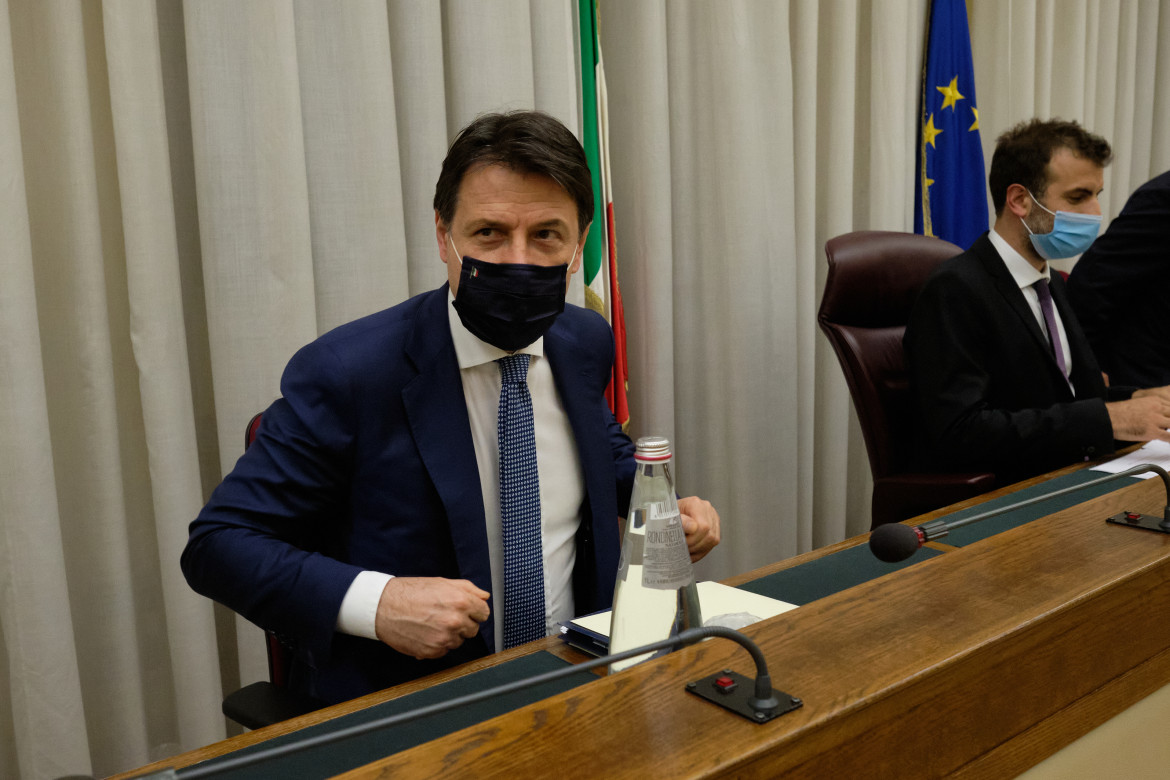Analysis
Egypt offers nothing in Regeni case, but Conte gives in
The Conte government’s diplomatic strategy is revolutionary: Give the other side everything they want first, then hope they come back to the table. In this case, it’s billions of dollars in weapons to Egypt, which refuses to cooperate in the Regeni inquiry.

No significant change in foreign policy was expected from the overnight deposition of Prime Minister Giuseppe Conte before the Parliamentary Commission of Inquiry into the death of Giulio Regeni. However, neither did we expect the silence on the arms shipment leaving for Egypt in the near future, including the two Fremm Fincantieri frigates as just the first part of contracts worth between $9 billion and $11 billion.
The outrageousness of the situation was underlined at the end by the president of the Commission, Erasmo Palazzotto (LeU): Egypt has become “a strategic partner in the Mediterranean, our main one,” despite the intrinsic nature of the Egyptian regime.
Last week, the reactions from the political world reflected existing allegiances: the M5S senators said in a note that they hoped that “this strategy will soon bear fruit, starting with the meeting between the Italian and Egyptian judicial authorities scheduled for July 1.” The PD, in the person of Deputy Foreign Minister Marina Sereni, promised “to raise the level of pressure” on Egypt on the eve of the meeting between prosecutors that will revolve around the Italian letter rogatory of April 2019 that has gone ignored by the other side.
Sinistra Italiana took a tougher stance: “I continue to believe that the choice to sell arms to Egypt is a big mistake,” Deputy Nicola Fratoianni told RAI3, recalling that a law currently in force, Law 185/90, prohibits the sale of arms to countries at war or which are violators of human rights, and suggesting to resort to a classic diplomatic strategy: “First you tell us what you need to tell us—to start with, you give us the home addresses of the five officers suspected of the arrest, torture and murder of Giulio. Then you get the weapons.”
This is the opposite of the strategy adopted by the Conte 2 government, proponent of an entirely new school of diplomatic thought that—if it actually works—might revolutionize international relations altogether: namely, prescribing that business dealings should be pursued and even intensified in order to make friends with the misbehaving other side, so that it would perhaps give in and deliver something concrete.
Let’s go ahead and apply that logic to countries devastated by embargoes and sanctions, to those towards which “sweet-talking” diplomacy has never been applied: to the Cubans, the Iranians, the Iraqis. They have been sanctioned (or bombed) to force them to bend to the interests of others.
But not Egypt. Egypt must be pampered, even if it is clear that no help will come from the regime. Because to give such help in the investigation would be to admit that Abdel Fattah al-Sisi’s coup-installed power system is one based on the monopoly of brute force by the army and secret services, the two institutions that give “legitimacy” to a president without a party or his own electoral base.
Surrendering those materially responsible for Regeni’s death—and the Rome Public Prosecutor’s Office has identified at least five of them with their tireless and extraordinary work, given high praise on Thursday night by the members of the Commission and by Conte himself—would mean, on a symbolic level, giving up the main perpetrator: the regime itself, which has skilfully woven a machine of social control and repression that is almost unparalleled.
That regime and its repressive apparatus are being given new legitimacy by Italy today, which considers it enough of an ally, and trustworthy enough, to sell it two Fremm frigates worth €1.2 billion.
For this reason (as much as one would like to believe, and there is no reason to doubt, that Conte will continue to ask al-Sisi for cooperation and the truth on Regeni’s death), Conte’s words do not move us even a millimeter further in the fight for justice, which has been thrown back onto the shoulders of the Rome Public Prosecutor’s Office, which on July 1 will discuss with the Egyptian investigators the deafening silence of the latter regarding the letter rogatory of 14 months ago, which demanded that they account for a number of things—among which is the presence of one of the five suspects, Major Sharif, in Nairobi in August 2017, where, according to a witness present at the scene, he revealed details about Giulio’s abduction over a lunch.
What the Italian investigators want—as was reiterated Thursday evening by the vice-president of the Commission, Deborah Serracchiani—is the legal residences of the five members of the Egyptian secret services that have been officially named as suspects for the crimes of kidnapping and torture. With this information, they can be tried in Italy in absentia.
Conte made no promises in this regard either: although he took responsibility for the lack of progress, during his public testimony he was not able to provide even a single element that would suggest any change in the investigation, not even a minimal one. The Prime Minister hid behind the date of July 1, stressing that he hoped that this scheduled meeting between the prosecutorial authorities would yield a “tangible manifestation of willingness” to cooperate on the Regeni case, something he had himself requested on a phone call with al-Sisi on June 7, which led to him being summoned to testify before the Commission of Inquiry.
The only form of “pressure” being applied is the absence of official state visits between Italy and Egypt (how can we forget the lavish ones organized by then-Prime Minister Renzi?), but the possibility of withdrawing the Italian ambassador is not even mentioned: in Conte’s view, “maintaining a constant dialogue allows us to demand respect.”
Originally published at https://ilmanifesto.it/regeni-conte-promette-la-svolta-che-non-ce/ on 2020-06-20
